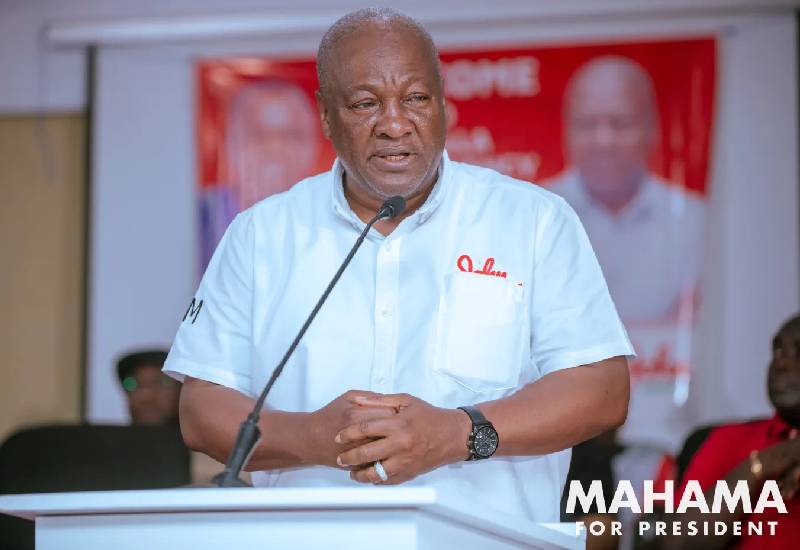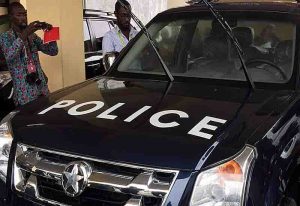By Godwin Owusu Frimpong
As Ghana Searches for Stability, Former President John Dramani Mahama Reflects on His Legacy While Proposing a New Vision for the Future
In a moment that could define a nation’s trajectory, former President John Dramani Mahama has stepped back into the political arena, announcing his candidacy as the flagbearer of the National Democratic Congress (NDC) with a manifesto promising justice, jobs, and prosperity. But, as he prepares to present his vision for Ghana, one must ponder: Is he the right leader for a country at this juncture?
Mahama’s journey from a young boy in Bole to the presidency was marked by both triumphs and tribulations. Having served from 2012 to 2017, he carried the weight of commendations and criticisms alike. The nostalgic echoes of his leadership linger—will they incite a new wave of support or stoke the fires of doubt among the electorate?
“We cannot afford to dwell in the shadows of our past,” Mahama asserted in a promotional video ahead of his manifesto launch. “The challenges we face have held us back for too long. It is time to build the Ghana that everyone desires.” His words, laced with urgency, seem to resonate with Ghanaians who are grappling with economic instability and rising unemployment—issues he plans to confront directly.
In reflecting on his presidency, Mahama acknowledges the bumps in the road. Policies that once promised to elevate the nation were stymied by global economic woes, and infrastructure projects often failed to meet expectations. Yet, with the soul of a nation at stake, he implores citizens to look beyond past missteps and towards the shared vision of a prosperous Ghana.
“Nobody is perfect; we learn from our experiences,” Mahama remarked, hinting at a deep introspection that characterizes his renewed campaign. “My time away from leadership has allowed for reflection, and I’ve constantly engaged with the grassroots to understand their real struggles.”
As the NDC gears up to unveil its manifesto, expectations are soaring. Mahama promises a set of comprehensive proposals that emphasize justice for the marginalized, economic opportunities through job creation, and a renewed commitment to fostering a stable and democratic society. Each point is a call to action, inviting Ghanaians to join his “rescuing journey.”
Yet, questions linger: Can Mahama inject fresh momentum into policies that stuttered during his tenure? Is the former president merely a vessel for nostalgia, or does he possess the vision and resolve necessary to steer Ghana toward a brighter future?
As Ghanaians prepare to evaluate his candidacy, the collective voice of a nation may prove to be the true arbiter. In times marked by uncertainty, the longing for recovery and renewal could either elevate Mahama back to power or remind him—and the NDC—that the past, with all its lessons, shapes the path forward.
The days leading up to the manifesto launch promise to be charged with excitement and skepticism alike, as Mahama embarks on this fascinating journey of introspection, revival, and possibly redemption—determined to prove that he can indeed be the best choice for Ghana at this moment.
Godwin Owusu Frimpong




